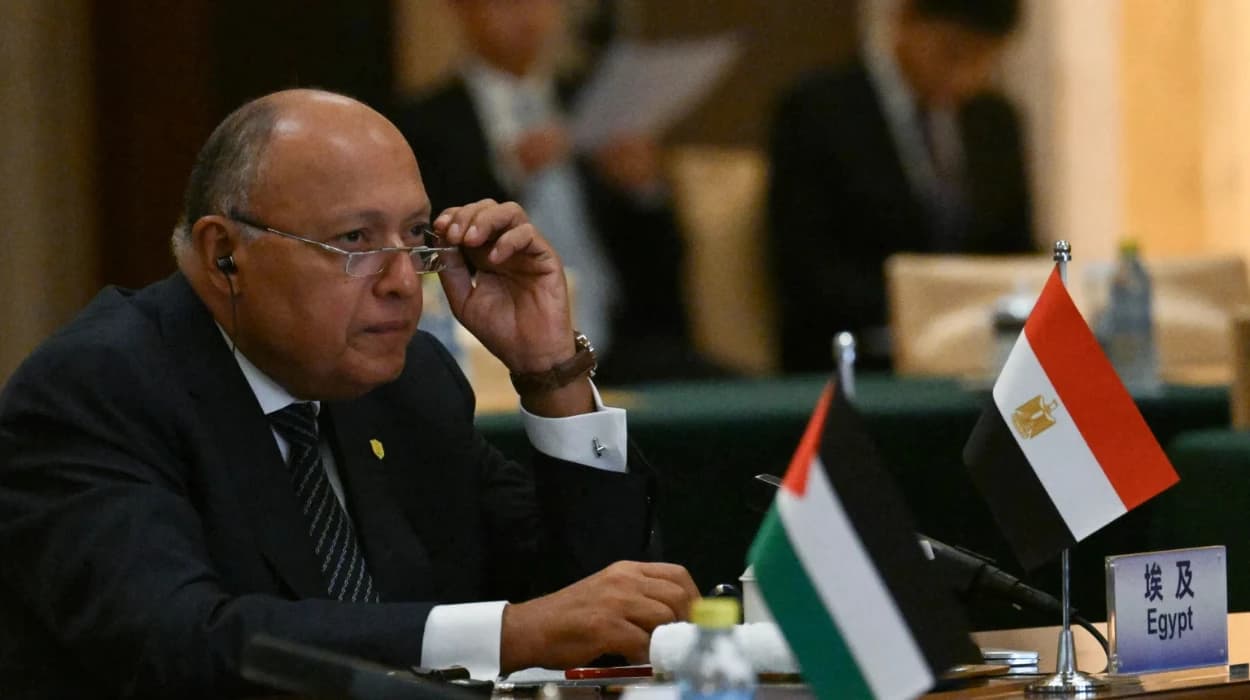Egypt has announced that, contingent upon the achievement of
a ceasefire, the Gaza Strip will be governed temporarily by a committee of 15
independent Palestinian technocrats under the supervision of the Palestinian
Authority (PA) for six months. This proposal is embedded within Egypt’s broader
efforts to mediate the Israeli-Hamas conflict, push for a 60-day ceasefire, and
lay the groundwork for Gaza’s reconstruction without forcibly displacing its
Palestinian population.
Egypt’s Plan for Gaza Administration Amid Efforts to Secure Ceasefire
As reported by Badr Abdelatty, Egypt’s Foreign Minister, in
a press conference in Cairo and covered by Anadolu Agency’s correspondent,
Egypt has declared that Gaza will be administered by a committee of 15
Palestinian technocrats operating under the Palestinian Authority’s supervision
for a transitional period of six months if a ceasefire agreement with Israel
and Hamas is reached. Abdelatty stressed that this arrangement aims to
reinforce the administrative unity between Gaza and the West Bank, which
remains a fundamental concern for sustaining Palestinian territorial and
political coherence.
In his statement, Abdelatty did not provide detailed
specifics on the administrative framework but emphasised the temporary nature
of this technocratic governance, designed to stabilise the region in the
immediate aftermath of hostilities.
Ceasefire Negotiations and Egypt’s Central Role
A Hamas delegation arrived in Cairo for negotiations centred
on a proposed 60-day ceasefire, which Egypt has actively championed with the
collaboration of Qatar and the United States. The objective of these talks,
according to Abdelatty, is to revive the original 60-day truce proposal that
includes the phased release of hostages held by Hamas, the return of
Palestinian prisoners by Israel, and the unfettered delivery of humanitarian
and medical aid into Gaza.
Abdelatty highlighted that ensuring the entry of
humanitarian aid without obstacles and conditions is critical, along with the
release of captives, as key elements of this ceasefire plan.
International and Regional Responses to the Gaza Administration Proposal
Egypt’s technocrat committee proposal is part of a broader
reconstruction and political vision for Gaza that contrasts sharply with former
U.S. President Donald Trump’s controversial idea of depopulating Gaza and
relocating Palestinians to neighbouring countries. Instead, Egypt’s
plan—endorsed by Arab League states and regional partners such as Saudi
Arabia—aims to preserve Palestinian residency in Gaza and works toward a
long-term recovery and eventual political stability.
NPR’s coverage notes that Egypt sees any mass displacement
of Palestinians into its own territory as a red line and has convened Arab
leaders to collectively reject such displacements. This regional coordination
underscores Egypt’s role as a mediator committed to a sustainable, Palestinian-centred
post-conflict solution.
European voices, including British MPs and European foreign
ministers, also back the Egyptian plan, seeing the $53 billion proposal as a
constructive step to rebuild Gaza infrastructure without displacement. However,
the plan faces rejection from Israel and scepticism from some in the U.S.,
complicating efforts to implement it in practice.
Israel’s Position and Netanyahu’s Comments
Israeli Prime Minister Benjamin Netanyahu has said that Gaza
will be governed by a "non-Israeli civilian administration" after
Israel's military operations, claiming that this administration would be run
not by Hamas or the Palestinian Authority but by third parties, without elaborating
further. This stands in contrast to Egypt’s proposed technocratic committee
under PA oversight.
Israel continues its military campaign and blockade in Gaza,
prompting international condemnation and allegations of war crimes. Israeli
actions since October 2023 have resulted in significant casualties, with over
61,700 victims reported. The International Criminal Court has issued arrest
warrants for Netanyahu and his former Defence Minister Yoav Gallant in
connection to these allegations, and Israel faces a genocide case at the
International Court of Justice.
Governance, Reconstruction, and the Path Forward
The Egyptian proposal encompasses a multi-phase strategy for
Gaza's reconstruction lasting several years, focusing initially on immediate
humanitarian relief and early recovery, later progressing to extensive
rebuilding and governance reforms. The technocratic committee’s governance is
designed as an interim arrangement to stabilise the enclave, underpinned by
plans to eventually merge Gaza’s administration with the Palestinian
Authority’s governance of the West Bank.
This vision includes a commitment to uphold the unity and
sovereignty of the Palestinian territories, establishing a political horizon
where arms control is exclusive to the Palestinian state. It also creates a
platform for Hamas to lay down arms conditionally, paving the way for national
elections and state formation.
The Humanitarian and Political Stakes
The ongoing conflict has created a severe humanitarian
crisis in Gaza. Egypt, alongside international actors, is urging for immediate
ceasefire implementation to enable unrestricted humanitarian access to food,
medical supplies, and essential aid. Cairo’s efforts include setting up
operation rooms to oversee ceasefire compliance and aid coordination while
continuing diplomatic engagements with Israel, Hamas, Qatar, and other
stakeholders.
Hamas has expressed its approval of the technocratic
administrative model pending national elections, underscoring Egypt's role as a
key mediator in these evolving negotiations.
Egypt’s announcement of a transitional governance committee
composed of 15 Palestinian technocrats supervised by the Palestinian Authority
represents a carefully calibrated proposal intended to stabilise Gaza
post-ceasefire, preserve Palestinian unity, and enable a path toward
reconstruction and political resolution. Positioned against competing visions
of Gaza’s future, including Israeli and American positions, Egypt’s approach
reflects regional aspirations to avoid displacement, uphold Palestinian
sovereignty, and restore Gaza following prolonged conflict and devastation.
As ceasefire talks continue and international pressure
mounts on all parties, Egypt’s plan remains a significant reference point in
envisioning Gaza’s immediate governance and long-term recovery.
